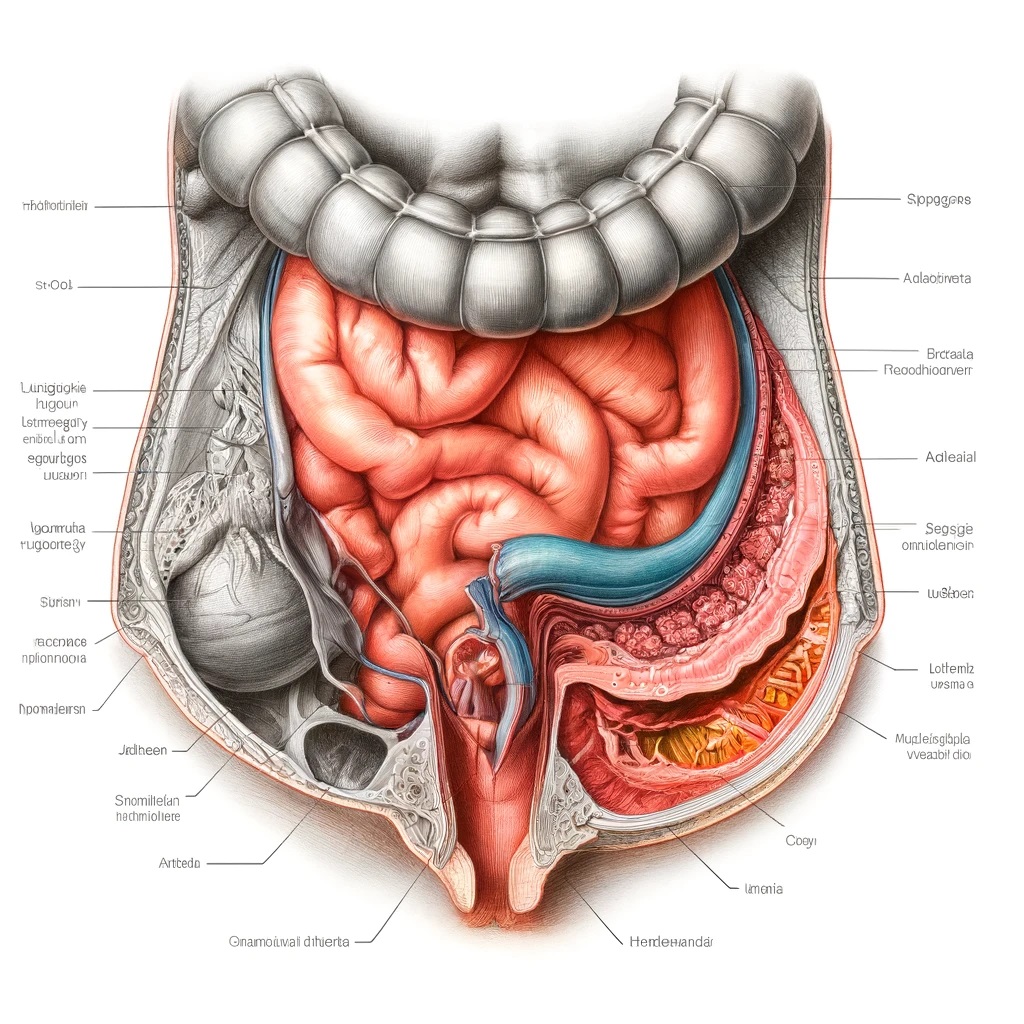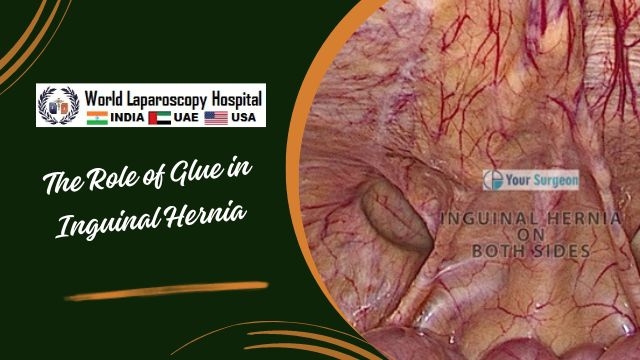
The Challenge of Postoperative Pain
Postoperative pain management is a critical aspect of surgical recovery. Inguinal hernia repair, though minimally invasive, can still lead to significant discomfort in the immediate postoperative period. Traditional suturing methods, while effective in closing the peritoneum, often contribute to this pain due to the physical irritation and inflammation they cause.
Introduction of Glued, Suture-Free Technique
The glued, suture-free peritoneal closure technique involves using tissue adhesives to seal the peritoneum after laparoscopic inguinal hernia repair. This method eliminates the need for sutures, which are known to cause localized trauma and inflammation. Tissue adhesives, such as cyanoacrylate-based glues, provide a strong and reliable seal without the mechanical irritation associated with sutures.
Mechanism and Application
During the laparoscopic procedure, after the hernia sac is reduced and the mesh is placed, the peritoneum is closed using a specialized tissue adhesive. The glue is carefully applied to the edges of the peritoneum, ensuring a complete and secure closure. This process is quick, efficient, and significantly reduces the time needed for peritoneal closure compared to suturing.
Benefits of Glued Peritoneal Closure
Reduced Postoperative Pain: The primary advantage of using glue instead of sutures is the marked reduction in acute postoperative pain. Studies have shown that patients undergoing glued peritoneal closure report lower pain scores in the immediate postoperative period compared to those with sutured closures.
Decreased Inflammation: The absence of sutures means less physical irritation to the tissues, leading to reduced inflammatory responses. This decrease in inflammation contributes to less postoperative discomfort and a smoother recovery process.
Faster Recovery: Patients who experience less pain and inflammation tend to recover more quickly. The glued technique promotes faster mobilization and return to daily activities, enhancing overall patient satisfaction.
Efficiency in the Operating Room: The application of tissue adhesive is quicker than suturing, reducing the overall duration of the surgery. This efficiency benefits both the patient and the surgical team, allowing for more streamlined procedures.
Clinical Evidence
Clinical studies have supported the efficacy and safety of glued, suture-free peritoneal closure. Research indicates that patients treated with this technique experience significantly lower pain levels in the first 24 to 48 hours post-surgery. Additionally, the risk of complications such as infections or seromas is comparable to, if not lower than, that of traditional suturing methods.
The glued, suture-free peritoneal closure technique represents a significant advancement in laparoscopic inguinal hernia repair. By reducing acute postoperative pain and minimizing tissue irritation, this method enhances patient comfort and speeds up recovery. As more surgeons adopt this innovative approach, it is poised to become the new standard in hernia repair, offering improved outcomes and higher patient satisfaction.
Inguinal hernia repair is a common surgical procedure, performed over 20 million times annually, presenting a substantial health and economic burden. Over the past thirty years, technical advancements have reduced the invasiveness of these surgeries, leading to better recovery outcomes and reduced costs. This article introduces an innovative surgical technique using biodegradable cyanoacrylate glue instead of traditional sutures to close the peritoneum during endoscopic hernia surgery. The peritoneum, a highly innervated tissue layer, can cause significant postoperative pain when closed with sutures. To evaluate the impact of this new technique on surgical invasiveness, a cohort study was conducted.
Discussion
The study demonstrates that using glue for peritoneal closure in laparoscopic inguinal hernia repair significantly reduces acute postoperative pain compared to traditional suturing methods. This reduction in pain is likely due to the less traumatic nature of the glue, which does not penetrate the tissue and cause the same level of inflammation as sutures. Additionally, the glue method did not increase the rate of complications, making it a safe alternative to suturing.
The use of glue in the abdominal cavity has been debated, but the specific cyanoacrylate glue used in this study has properties that reduce inflammation and provide a strong, reliable closure. This study is one of the first to systematically compare glued peritoneal closure to sutured closure in a large cohort, providing evidence that glue can be a superior method in terms of reducing acute postoperative pain.
Conclusion
The glued, suture-free peritoneal closure technique is an innovative, safe, and less painful method for laparoscopic inguinal hernia repair. It potentially leads to enhanced recovery and decreased health costs. Given the high prevalence of inguinal hernia repairs, the adoption of this technique could have significant beneficial effects on patient outcomes and healthcare systems. Further large-scale studies and randomized controlled trials are recommended to confirm these findings and to fully establish the benefits of this approach.



